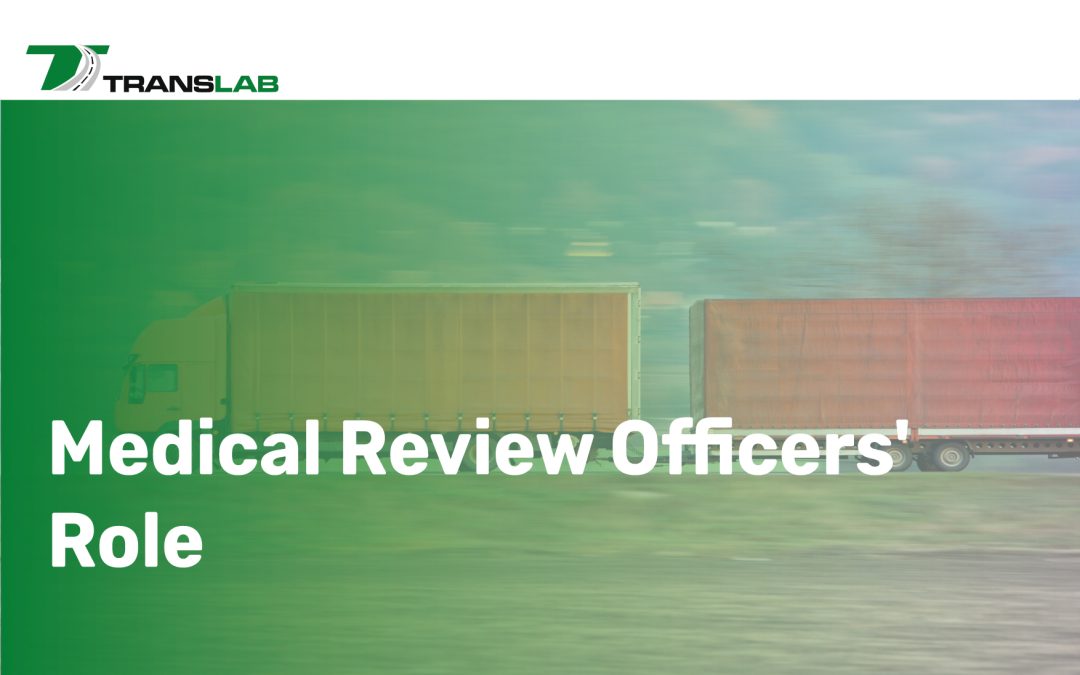In the world of drug and alcohol testing, especially in industries governed by the Department of Transportation (DOT), the integrity of the testing process is paramount. A Medical Review Officer (MRO) plays a critical role in maintaining this integrity, ensuring that the results are accurate and reliable. Understanding the responsibilities and significance of MROs can help organizations navigate the complexities of DOT drug and alcohol testing effectively.
What is a Medical Review Officer?
A Medical Review Officer is a licensed physician, typically with training in occupational medicine or substance abuse, responsible for interpreting and verifying drug and alcohol test results. MROs serve as an intermediary between the testing laboratory and the employer, ensuring that the testing process adheres to regulatory standards while protecting the rights of employees.
Responsibilities of Medical Review Officers
1. Reviewing Test Results
MROs are responsible for evaluating laboratory test results for drug and alcohol use. When a test returns positive, the MRO investigates the result further. This process includes:
- Confirming Legitimacy: The MRO checks if the test was conducted following proper procedures. They ensure the sample was collected and analyzed correctly, adhering to DOT guidelines.
- Assessing Medical History: The MRO reviews the individual’s medical history and any medications that could explain the positive result. For example, certain prescription medications can lead to positive drug tests. The MRO must determine if the substance was taken legitimately or misused.
2. Conducting Interviews
After reviewing test results, MROs often conduct interviews with individuals who have tested positive. This step is essential for gathering more context about the test result. During the interview, the MRO may:
- Ask about current medications and dosages.
- Discuss any underlying medical conditions that could impact test results.
- Provide an opportunity for the individual to explain the circumstances surrounding the positive test.
3. Making Determinations
Based on their review and interviews, MROs make determinations regarding the test results. If an individual can provide a legitimate medical explanation for a positive test, the MRO may report the result as negative. Conversely, if no legitimate explanation exists, the MRO confirms the positive result to the employer.
4. Providing Recommendations
MROs also offer recommendations to employers regarding next steps. This may include suggesting counseling, rehabilitation, or further medical evaluation for the employee involved. Their recommendations are crucial in ensuring that employers respond appropriately and comply with DOT regulations.
The Importance of MROs in DOT Drug and Alcohol Testing
MROs play a vital role in preserving the integrity of drug and alcohol testing programs. Their expertise ensures that testing processes are fair and just, balancing the need for workplace safety with the rights of employees. Here are a few reasons why MROs are essential:
1. Protecting Employee Rights
MROs serve as advocates for employees, ensuring they are treated fairly throughout the testing process. By reviewing test results and considering individual circumstances, MROs help prevent wrongful termination or disciplinary actions based solely on a positive test.
2. Ensuring Compliance
With ever-evolving regulations in DOT drug and alcohol testing, MROs help organizations stay compliant. They understand the intricacies of DOT regulations and help employers navigate the testing requirements, minimizing the risk of legal issues.
3. Promoting Safety
By ensuring accurate interpretations of test results, MROs contribute to workplace safety. Their oversight helps maintain a drug-free workplace, which is particularly critical in industries where safety is paramount, such as transportation.
The role of Medical Review Officers in maintaining testing integrity is crucial for organizations involved in DOT drug and alcohol testing. By reviewing results, conducting interviews, making informed determinations, and providing recommendations, MROs ensure that the testing process is fair, compliant, and effective. Their expertise protects employee rights and promotes a safer work environment, ultimately contributing to the overall integrity of drug and alcohol testing programs. For organizations, understanding the importance of MROs is key to fostering a compliant and safe workplace.


